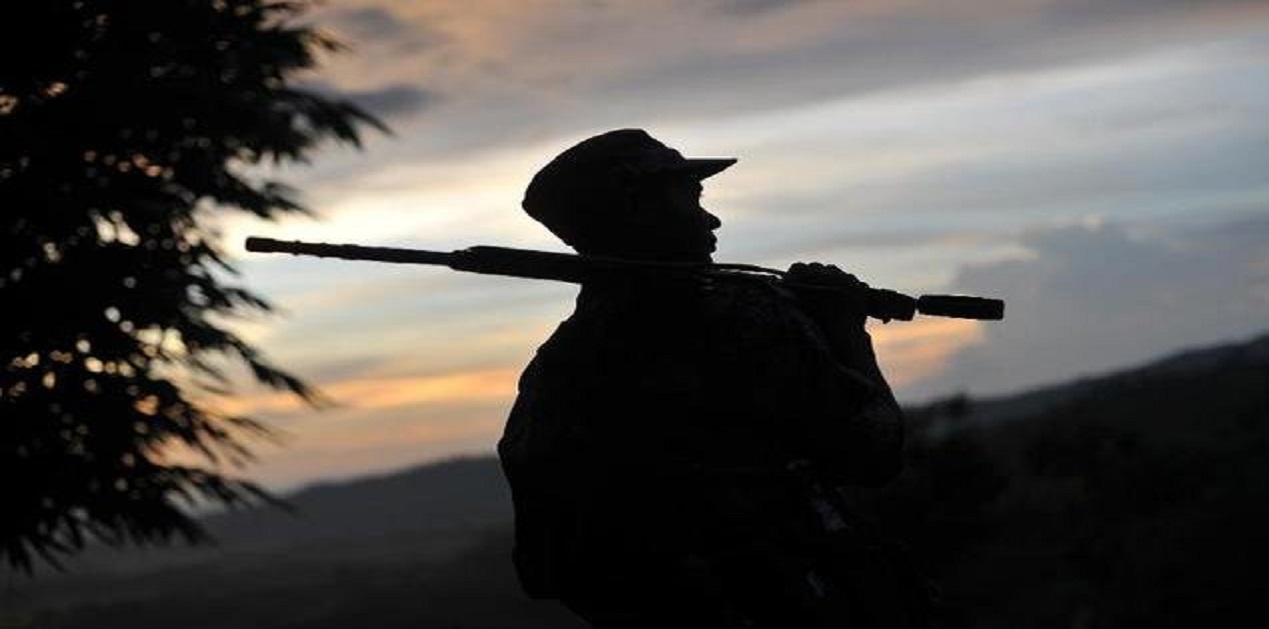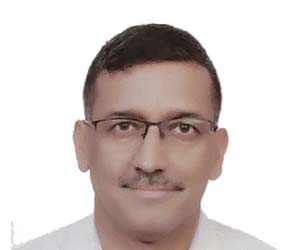November saw Myanmar come under coordinated international legal offensive with three cases filed against it in a span of four days, centered around the Rohingya crisis. Internally, the peace process remains stalled and the skirmishes between the Arakan Army (AA) and Tatmadaw (Myanmar Army) continued unabated. The capture and release of five Indians by the AA, one of whom unfortunately succumbed to a heart attack, was a landmark event. The capture of a Member of Parliament (MP) from Chin State was a major achievement for the AA. The MP is still in AA custody.
Constitutional reforms take a back seat as the National League for Democracy has decided to go slow until next year’s election. Prime Minister Narendra Modi had a fruitful meeting with Aung San Suu Kyi on the sidelines of the ASEAN summit. Imphal became India’s third airport with flights to and from Myanmar as flight services commenced from Mandalay. In the field of technology, Myanmar’s shift to Unicode from the local Zawgyi script was in effect the digital coming-of-age of Myanmar and is expected to make a huge difference to the digital aspirations of the population there.
The Unending Conflict
Peace remained elusive as violence continued unabated throughout the month. An ethnic Ta’ang Buddhist monk in northern Shan State was tortured by the Tatmadaw after the army found military equipment belonging to Ta’ang National Liberation Army (TNLA) inside his monastery1. Tensions have increased recently between the Myanmar military, the United Wa State Army (UWSA) and the National Democratic Alliance Army (NDAA) in eastern Shan State. This was triggered by in late October after the Myanmar military began stricter inspections of Wa travellers on the road between Mongyang and Mongkhet townships2.
Chin State government wrote a letter to the National Reconciliation and Peace Centre (NRPC) for the release of 82 civilians abducted by the AA who were from Khamaungwa, Thanhtaung, Nanchaungwa and Wonchaungwa villages.3 On 2November 2019, some soldiers from Tatmadaw military column passing by Aung Myat Kyaw village sustained injuries in the surprise attack launched by 60 AA members.4 Thereafter, on 3 November 2019, AA arrested 10 people including five Indians and an upper house MP from Chin Paletwa Township.5 India’s response to the arrest of five Indian nationals was spontaneous and the government’s timely intervention ensured the release of five Indians and five Myanmar nationals, including the MP of Chin State.6
In the first week of November, TNLA and Tatmadaw clashed five times according to former spokesman Major Mai Aik Kyaw. There were also clashes in Mongkung Township between Restoration Council of Shan State/Shan State Army (RCSS/SSA) and Tatmadaw, including a military column of 40 soldiers of Tatmadaw’s 757 Light Infantry Battalion clashing with the RCSS/SSA. RCSS said that it clashed 172 times with the Tatmadaw since it signed ceasefire with the central government in 2012; 51 times after signing the Nationwide Ceasefire Agreement (NCA) in 2015 and four times after the Tatmadaw announced unilateral ceasefire at the end of 2018, which ended in September this year.7 On November 10, in Rakhine state, Myaypone Township, Wetyu Village a fisherman and his four month pregnant wife who were travelling on a motor-propelled boat were shot by the Tatmadaw leading to the death of the lady.
Subsequently fresh fighting emerged between Tatmadaw and TNLA in Kutkai Township, Shan State. The sporadic clashes led to closing of the Muse-Kutkai-Pyidaungsu road.8 Yet again, on 13 November 2019, skirmishes broke out between Tatmadaw and TNLA near Inmeinhokyant village tract. Myanmar military summarily rejected the offer of the AA to exchange captured Myanmar security personnel in return for the people detained by the military for the alleged affiliation with AA.9
Rohingyas
In a new development, a seemingly coordinated strategy to put pressure on the Myanmar over the Rohingya crises, three separate cases were filed against Myanmar for atrocities against Rohingyas10.
Firstly, on 11November 2019, a West African country, The Gambia, on behalf of the Organisation of Islamic Countries (OIC), filed a genocide case against Myanmar in the International Court of Justice (ICJ), urging the United Nations court to order Myanmar to take measures to stop atrocities and genocide against its own Rohingya people. The Gambia has accused Myanmar of violating the Convention on the Prevention and Punishment of the Crime of Genocide-1948.
Secondly, the Burmese Rohingya Organisation of UK (BROUK) has filed cases against President Win Myint, State Counsellor Suu Kyi, Tatmadaw Chief Senior General Min Aung Hlaing, and former presidents Thein Sein and Htin Kyaw for incidents in Rakhine from 2012 till 2018. The case has been filed on the legal principle of Universal Jurisdiction in the federal court in Buenos Aires, Argentina. Myanmar has declined to respond to this case.
Finally, on 14November 2019, based on a request filed on 4th July 2019, by Fatou Bensouda, a Gambian lawyer and international criminal law prosecutor and the International Criminal Court's (ICC) Chief Prosecutor since June 2012, Pre-Trial Chamber III of the ICC authorised the Prosecutor to proceed with an investigation for the alleged crimes within the ICC's jurisdiction in the Situation in the People's Republic of Bangladesh/Republic of the Union of Myanmar. While the Myanmar is not a signatory to the Roman Statute, Bangladesh has signed it.
In response to the series of international rights groups efforts to prosecute the country, Zaw Htay spokesman of the Myanmar government while rejecting the decision of ICC stated that Myanmar’s image has been ‘severely damaged internationally’.11 Suu Kyi’s office wrote on Facebook that Myanmar has retained international lawyers to contest the case submitted by Gambia and further stated that “State Counsellor, in her capacity as Union Minister for Foreign Affairs, will lead a team to Hague, Netherlands, to defend the national interest of Myanmar at the ICJ”12.
ASEAN
At the 35th ASEAN Biannual Summit in Thailand, the 2019 concluding statement of the 17 page Chairman’s speech revealed that ASEAN was heeding the urgent need to garner more consistent political attention to the Rakhine problem. Further, the ASEAN 10-member countries unanimously supported the formation of an ad hoc support team to carry out the recommendations of the preliminary needs. It includes continued communication and consultation with affected communities13.
Bangladesh
Bangladesh has been mounting pressure to resolve the Rohingya Crisis. For this Bangladesh is seeking cooperation from India, China and European nations. Bangladesh Army Chief General Aziz Ahmed has called upon Chinese Defence Minister Wei Fengh to take the initiative to resolve Rohingya crisis in association with the military leadership in Myanmar.14 Bangladesh has also asked European nations to suspend the Generalised Scheme of Preferences (GSP) under which Myanmar gets ‘Everything But Arms’ (EBA) privilege, until hundreds of thousands of Rohingyas are repatriated to Rakhine state.15
India
On the issue of resolving Rohingya crisis, India reiterated its “supportive” approach towards Bangladesh. Dr S Jaishankar’s recent letter to Bangladesh’s Foreign Minister Dr AK Abdul Momen mentioned that “safe, speedy and sustainable” return of displaced persons to Myanmar is the best interests of all concerned.” 16 He also mentioned the “This is also in the best interest of lasting regional security and stability”. Prime Minister Narendra Modi on the sidelines of ASEAN summit mentioned the speedy, safe and sustainable return of the displaced people from Bangladesh to their homes in the Rakhine state was in the interest of the region, displaced persons, and India, Bangladesh and Myanmar.
Modi- Suu Kyi Meet
On the sidelines of the ASEAN summit, Prime Minister Narendra Modi conveyed to Aung San Suu Kyi the importance India attaches to her country’s cooperation in ensuring that insurgent groups do not find space to operate across the India-Myanmar border. In the deliberations Modi emphasized India’s readiness to expand its socio-economic projects in the country’s Rakhine state.17 Emphasizing Myanmar as a partner at the crossroads of India’s Act East Policy and the Neighbourhood First Policy, PM Modi stated “India’s continuing commitment to improve physical connectivity to and through Myanmar to Southeast Asia, including through building road, port and other infrastructure.”
Imphal – Mandalay Air Connectivity
In a major boost to air connectivity between India and Myanmar, private carrier Air KBZ commenced its chartered service between Mandalay and Imphal from 23 November 2019 onwards. 18 Union Minister of State for Development, Dr. Jitendra Singh tweeted subsequently that ‘this service will transform the economy of northeast India and strengthen the regional cooperation’. However, in keeping with the traditional lack of clarity with most things in the North East, the frequency of the flight service could not be ascertained from the media inputs which form the basis of these Round Ups.
As per The Telegraph, the chartered flight will operate thrice a week. 19Indian Express quotes Manipur Education Minister Thokchom Radheshyam that the chartered flight will be operational thrice a month.20 Hindustan Times informs us that the flight service will be operated twice a week, on Wednesdays and Saturdays. 21 Frequency notwithstanding, the improvement is a positive step in connectivity and needs to be followed up.
Peace Process
Even as the peace process trudges on, a perpetual trust deficit between government and ethnic armed groups, fueled by violence and posturing, continues to prevent real progress. The country seems to be “widening the space of armed confrontation or civil war and narrowing the peace negotiation process”. On 29 October 2019, the Fourth Anniversary Celebration of signing of the NCA came amid an upsurge of hostilities in the fighting in Rakhine state between the AA and the Tatmadaw, and skirmishes in northern Shan between the Tatmadaw and the TNLA22. The celebrations were a lacklustre affair. Conspicuous by their absence were former President U Thein Sein and his former minister U Aung Min, who played a leading role in Union Solidarity and Development Party Government launching the peace process in 2011. The somber mood of the event was reflected in Suu Kyi’s speech wherein she seemed to be frustrated about the continuing armed conflicts, and called for the inclusion of armed groups that have not signed the NCA to be included in the peace process. The major barrier to the peace process is the total lack of trust between the Tatmadaw and Ethnic Armed Organizations (EAO). The distrust has led both sides to strengthen their military capabilities23.
On the question of mediation, Christine Schraner Burgener, the UN Secretary General’s Special Envoy to Myanmar said a third party could help mediate a solution to the fighting in Rakhine. Burgener vowed to help convince the Tatmadaw and the Government that a third party is required to reduce fighting in strife torn Rakhine State24. In a latest development Arakan National Party (ANP) Vice Chair Daw Aye Nu Sein told Myanmar Times that ANP will cooperate if the Government wants it to act as a mediator to the reduce the clashes in northern Rakhine state.25
Miscellaneous
Ending decades of technological isolation, Myanmar recently switched to Unicode, a universal computer script containing characters from most of the world’s written languages. Aung San Suu Kyi officially launched it as she called for Myanmar to catch up on its neighbor Cambodia, which embraced Unicode in 2010. Till now internet users in Myanmar had no choice but to use the local Zawgyi script and the change to Unicode is expected to make a huge difference to the digital aspirations of the population there.
References:
- https://www.irrawaddy.com/news/burma/buddhist-monk-accused-aiding-ethnic-armed-group-tortured-myanmar-military.html
- https://www.irrawaddy.com/news/burma/aa-releases-25-hostages-blames-myanmar-military-deadly-bombing.html
- https://elevenmyanmar.com/news/aa-detains-82-civilians-in-chin-state-tatmadaw
- https://elevenmyanmar.com/news/some-60-aa-members-attack-tatmadaw-military-column-in-west-of-yoetayoke-village
- https://www.irrawaddy.com/news/aa-frees-18-myanmar-firefighters-one-dies.html
- https://pib.gov.in/PressReleaseIframePage.aspx?PRID=1590382
- https://www.bnionline.net/en/news/culture-political-dialogue-fading-hope-resolve-ethnic-conflict
- https://www.mmtimes.com/news/new-fighting-closes-muse-kutkai-road-shan.html
- https://www.irrawaddy.com/news/burma/myanmar-military-rejects-aa-offer-prisoner-exchange-rakhine.html
- https://www.aljazeera.com/news/2019/11/cases-brought-myanmar-deliver-justice-rohingya-191117174800430.html
- http://www.newagebd.net/article/90955/image-severely-damaged-says-myanmar
- https://edition.cnn.com/2019/11/20/asia/aung-san-suu-kyi-rohingya-icj-intl/index.html
- https://www.passblue.com/2019/11/10/myanmars-neighbors-must-build-trust-among-rohingya-refugees/
- http://www.newagebd.net/article/90215/army-chief-seeks-chinese-support-to-resolve-rohingya-crisis
- https://www.dhakatribune.com/bangladesh/rohingya-crisis/2019/11/01/bangladesh-for-moratorium-on-eu-gsp-for-myanmar-till-rohingyas-return
- https://www.dhakatribune.com/bangladesh/rohingya-crisis/2019/11/03/jaishankar-india-remains-supportive-to-resolve-rohingya-crisis
- https://www.news18.com/news/india/india-attaches-importance-to-myanmars-cooperation-against-insurgency-pm-modi-to-aung-suu-kyi-2373259.html
- https://www.aninews.in/news/national/general-news/flight-service-commences-between-mandalay-and-imphal20191124071743/
- https://www.telegraphindia.com/states/north-east/mandalay-imphal-flight-starts/cid/1721590
- https://indianexpress.com/article/explained/imphal-mandalay-flight-myanmar-india-asean-northeast-6136241/
- https://www.hindustantimes.com/india-news/imphal-mandalay-flight-service-commences/story-XprB87w3vtc9KGObISq98N.html
- https://www.frontiermyanmar.net/en/the-nca-anniversary-ceremony-was-the-celebration-of-a-tragedy
- https://www.irrawaddy.com/opinion/guest-column/keys-building-trust-achieving-peace-myanmar-militarys-hands.html
- https://www.mmtimes.com/news/burgener-suggests-third-party-mediation-rakhine-strife.html
- https://www.mmtimes.com/news/anp-offers-mediate-conflict-between-aa-and-tatmadaw.html
(The paper is the author’s individual scholastic articulation. The author certifies that the article/paper is original in content, unpublished and it has not been submitted for publication/web upload elsewhere, and that the facts and figures quoted are duly referenced, as needed, and are believed to be correct). (The paper does not necessarily represent the organisational stance... More >>
Image Source: https://www.thepeninsulaqatar.com/uploads/2016/08/10/images/post_main_cover_fit//Clashes%20between%20Myanmar%20and%20rebels_AFP.jpg











Post new comment